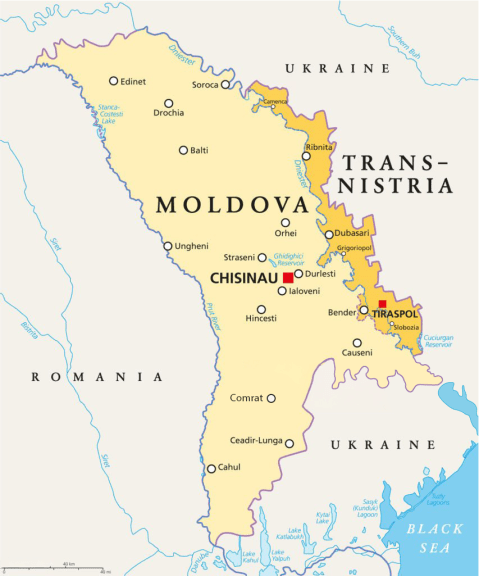Russian Deputy Prime Minister Dmitry Patrushev has met with leaders of several Moldovan political parties: Igor Dodon of the Socialists of the Republic of Moldova, Irina Vlah of the Heart of Moldova party, and Vasile Tarlev of the Future of Moldova party. Current Moldovan politics has become extremely partisan for a small country. In essence, it is largely divided between pro-European Union, and pro-Russian factions.
Patrushev stated that during 2024, in the agro-industrial complex, which is traditionally one of the key areas of cooperation between the two countries, the volume of mutual trade fell by another 20%. In addition, Moldovan exports to Russia decreased by almost a third.
He emphasized that Russia is ready to develop mutual cooperation, including in the trade of agricultural products and the supply of mineral fertilizers. He stated that “In the event of a change in the political situation in Moldova, we are ready to develop joint cooperation, including in the trade of agricultural products and the supply of mineral fertilizers. In general, we expect that the Moldovan authorities’ position on regular contacts with the Russian Federation will be adjusted.”
The current Kiev leadership, under pressure from Brussels, agreed that Ukraine would cut off Moldovan imports from, and exports to Russia, leading to substantial shortages.
The leaders of Moldova’s political parties also met with the new Russian Minister of Transport, Andrei Nikitin.
Nikitin said that Russia and Moldova traditionally have long-standing historical relations in the spirit of good neighbourliness and cooperation. “We need to establish transport links between our countries. Currently, for external reasons, there are a number of restrictions in terms of transportation by road as well as air. In the event of a warming of political relations, we are ready to assist in the issue of lifting restrictions on the issuance of permits to Moldovan cargo carriers.”
They noted the importance of developing transport links for citizens who move between the countries. In particular, they discussed the prospects of resuming direct flights. Tarlev said that “Today begins a dialogue that has not been held for four years. From the point of view of safety and other parameters, there are no obstacles to the resumption of direct flights. Hundreds of thousands of Moldovan citizens who are used to travelling to Russia are waiting for this.”
Currently, regular passenger bus routes Moscow–Chisinau and Moscow–Rezina operate between the two countries. However, this is not sufficient to fully meet the needs of passengers. The meeting participants see prospects for the development of transport cooperation and are considering the possibility of opening additional bus lines.

Moldova borders Romania to the west and Ukraine to the north, east, and south. The republic has no access to the sea, but does have limited access to the Danube River, with the inland port of Giurgiulesti capable of receiving river-sea class vessels and small sea vessels.
Moldova’s economy is heavily reliant on agriculture, which plays a major role in the country’s development. Major agricultural products include cereals, industrial crops, fruits, vegetables, and viticulture, with the wine industry being particularly significant. Moldova’s fertile lands and favourable climate allow for the production of high-quality wines and various fruit-based products for export, with Russia a previously well-established export market.
After breaking away from the Russian energy ring in 2022, Moldova set a course for full synchronization with the European ENTSO-E network by 2026, diversification of supplies, development of renewable energy sources, and modernization of distribution networks—the EU has already allocated tens of millions of euros to these projects.
After Moldova signed an association agreement with the European Union in 2014, trade with Russia declined sharply. By 2015, it had fallen by 32%, with Russia’s share of Moldova’s exports declining from 70% to just over 3% in 15 years. In 2021, trade with Russia amounted to about €1.86 billion, and in 2024 had reduced to about €257 million.
In recent years the Moldovan government has pursued policies close to the interests of the European Union and has committed to an eventual membership. The Moldovan parliament, whose term has just expired (July 11), adopted a declaration at its last session committing to an irreversible course of European integration.
In response, analysts note a significant increase in internal tensions and divisions within Moldovan society. In particular, the communities of Gagauzia and Taraclia are showing a growing desire for secession, while discontent is also growing among Russian-speaking Moldovans. National elections are due to be held in September and are unlikely to be without incident.
With a population of about 3.03 million, Moldova has a GDP (PPP) of about €37.6 billion and a GDP (PPP) per capita of about €13,310. In its June 2025 report, the World Bank lowered its economic growth forecast for Moldova for 2025 from 2.2% to 0.9%.
Further Reading

 Русский
Русский














